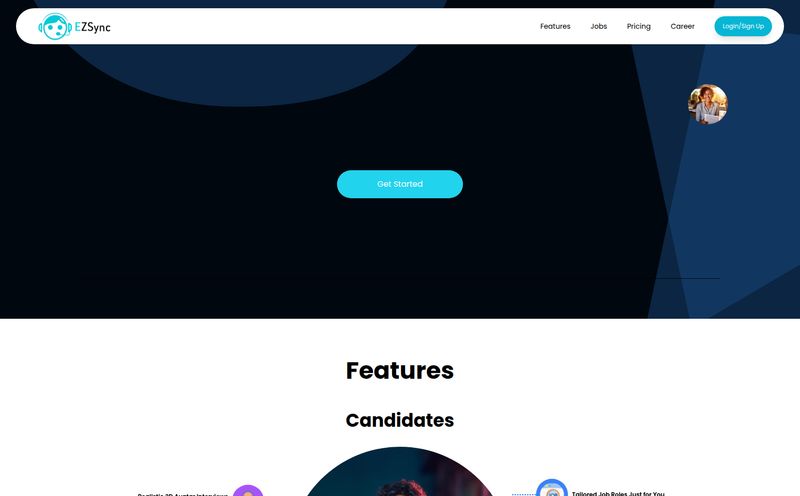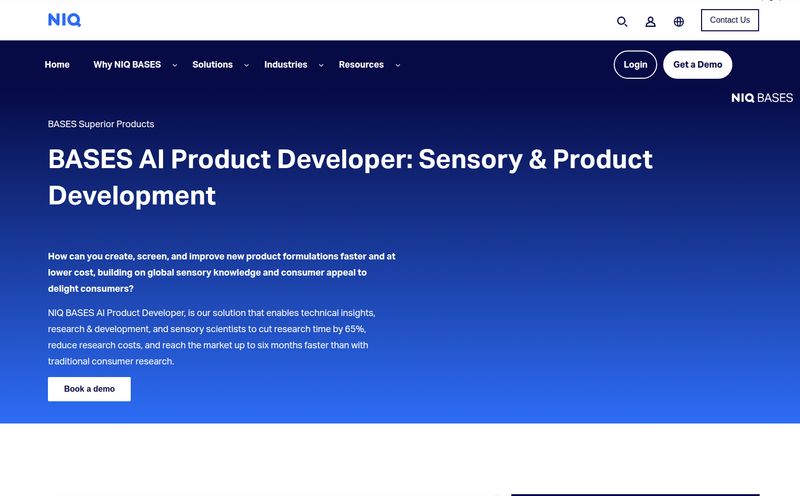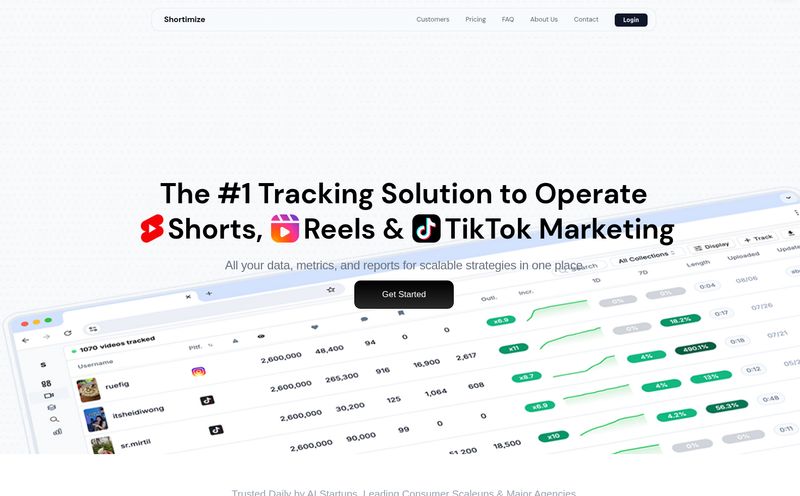I want to tell you a story. A few years back, I was working on a major site redesign for a client. We had opinions. The client had opinions. The CEO's cousin who once took a marketing class had opinions. You know how it goes. What we needed was user feedback. Real, actual feedback from the people who used the site every day.
So we kicked off a traditional user research project. The whole shebang. We spent a week finding and screening participants. Another week scheduling interviews. Then came the interviews themselves, a grueling slog of back-to-back Zoom calls. After that? Days spent transcribing, manually tagging themes, and trying to pull coherent insights from a mountain of qualitative data. By the time we presented our beautiful, expensive report, the development timeline had shifted, a key stakeholder had left the company, and half our findings were already obsolete. The whole process took nearly two months and cost a small fortune.
Sound familiar? I thought so. For years, we've been stuck in this painful cycle. We know we need deep user insights, but the speed of business often makes traditional research feel like an anchor dragging behind a speedboat. That’s why when a tool like UserCue pops onto my radar, I have to take a look.
What on Earth is UserCue?
Okay, let's get down to it. UserCue isn’t just another survey tool. Forget multiple-choice questions and boring radio buttons. The pitch is simple but, honestly, pretty wild: it’s a platform that uses an AI to conduct user interviews for you. At scale.
We're talking about the ability to have your own AI moderator interview up to 1,000 participants in a single hour. Let that sink in. I can barely manage to schedule three human-to-human interviews in a day, let alone a thousand. The platform automates the entire flow: it conducts the interviews based on your script, collects the transcripts, and then—here’s the kicker—analyzes it all to give you real-time insights. Its a potential game-changer for anyone in the product, marketing, or UX space.
The Features That Made Me Look Twice
I've seen a lot of tools promise to revolutionize my workflow, and most of them end up being more work than they're worth. But a few of UserCue’s features really stand out.
AI-Moderated Interviews at Scale
This is the headline act. Instead of a static form, UserCue offers a conversational experience. You can design interviews with both structured questions and more dynamic portions, allowing the AI to probe for more detail based on a user's answers. It's the closest thing to a real, one-on-one conversation you can get without, well, a real one-on-one conversation.
Automated Analysis and Real-Time Reports
For me, this is the real magic. The single biggest bottleneck in qualitative research is the analysis. Listening to hours of recordings, transcribing, and then trying to find patterns is mind-numbing work. UserCue automates this completely. As the interviews happen, the platform is already collecting and analyzing the transcripts, pulling out key themes and insights based on the learning outcomes you defined at the start. No more spreadsheets of doom.
Customizable AI Agents
This is a nice touch. You can apparently customize the AI interviewer's personality and tone to match your brand. So, if you're a playful B2C company, your AI can reflect that. If you're a serious B2B fintech firm, it can be more formal. This small detail shows they're thinking about the entire user experience, not just the data output.

Visit UserCue
The Good, The Bad, and The... AI?
No tool is perfect, right? As a professional skeptic (and SEO), I always look for the catch. Here’s my honest breakdown of where I think UserCue shines and where you might want to be cautious.
The Good Stuff (Why I'm Genuinely Excited)
The first thing is just pure, unadulterated velocity. Getting meaningful feedback in days instead of weeks or months aligns perfectly with agile sprints and rapid prototyping. You can test an idea, get feedback, and iterate before the project goes off the rails.
Then there’s the cost. On their homepage, there’s a quote from Stephane Bugel, the CEO of Decibio, that just hits the nail on the head:
"I'm definitely concerned that this may make consultants nervous. In many cases, I pay 500k and wait weeks for a report, or I get 90% of the insights for 5% of the price in 2 days... mmmmm let me think!!"
That says it all. While it might not be a direct replacement for a high-end consulting gig, it offers an incredible amount of value for a fraction of the price. The reliability is also a huge plus. An AI moderator doesn't have bad days, it doesn't get tired, and it won't accidentally lead the witness with biased questioning. It’s consistent, every single time.
Potential Red Flags (Let's Be Real)
Okay, let's tap the brakes a bit. The first and most obvious concern, echoed in that testimonial, is the human element. Will this replace human researchers? I dont think so. I see it as a different tool for a different job. An AI can’t read the subtle pause, the slight frown, or the excited shift in posture that a human researcher can. For deep, empathetic, truly nuanced discovery, you probably still need a person in the room.
Another thing to consider is the GIGO principle: Garbage In, Garbage Out. The success of a UserCue campaign will rely almost entirely on the quality of the initial research brief and interview script. If your questions are poorly phrased or your goals are fuzzy, the AI will just efficiently gather useless feedback. It’s a powerful amplifier, for better or for worse.
Who Is This For, Really?
In my opinion, UserCue is a dream come true for a few specific groups. Product teams operating in two-week sprints who need to quickly validate a feature idea. Marketing teams looking to test new messaging or value propositions across a large audience. Early-stage startups that have a million questions but don't have a $50k research budget.
It’s for anyone who needs directional, qualitative feedback, and needs it fast. Where might it not fit? If you're conducting a deep ethnographic study on a highly sensitive topic or trying to understand complex, emotional user motivations, the warmth and adaptability of a human researcher is probably still unbeatable.
So, How Much Does This Magic Cost?
Ah, the million-dollar question. Or, hopefully, a much-less-than-a-million-dollar question. I went looking for a pricing page on their site, and... nothing. Nada. Just a 404 error.
In the SaaS world, this usually means one thing: enterprise-level, custom pricing. You won’t find a neat little three-tiered pricing table where you can just pop in your credit card. You'll have to "Book a Demo" and talk to a sales rep who will build a custom plan based on your needs (like the number of interviews or seats you require). This isn't necessarily a bad thing—it means you get a plan suited for you—but it does mean you can’t window shop. You have to commit to a conversation to find out what it'll set you back.
Is It The Future of User Research?
Look, I'm an old-school guy in some ways. I believe in the power of a good conversation. But I'm also a realist who has to generate traffic and show results in a world that moves at lightning speed. UserCue feels like a massive step in the right direction. It's not here to kill the art of the user interview; it's here to solve the agonizingly slow and expensive parts of it.
It’s a tool for getting 90% of the insights for a fraction of the time and cost. For many of the questions we ask every day, that's more than good enough. It’s a scalpel for targeted, rapid-fire inquiry, not a shovel for deep, exploratory digging. And in my toolbox, there's definitely a place for both.
Frequently Asked Questions about UserCue
- How is UserCue different from a survey tool like SurveyMonkey?
- The main difference is the conversational nature. Surveys use static, multiple-choice or short-answer questions. UserCue aims to simulate a real interview with a back-and-forth dialogue, allowing for more dynamic and in-depth responses.
- Can I really interview 1,000 people in one hour?
- According to them, yes. That's the core premise of their scalable AI technology. The platform is designed to run a massive number of interviews concurrently, something that's physically impossible for human moderators.
- Is UserCue suitable for B2B user research?
- Absolutely. As long as you can source and incentivize the participants, the tool itself is industry-agnostic. The ability to customize the AI agent’s tone would be particularly useful for maintaining a professional voice suitable for B2B audiences.
- Do I need to be a data scientist to use the reports?
- It seems unlikely. The entire point of the automated analysis is to make insights accessible and fast. While a background in research will help you write a better interview script, the output is designed to be clear and actionable for product managers, marketers, and designers.
- What's the main 'catch' with using AI for interviews?
- The biggest tradeoff is the loss of human nuance. An AI can't detect sarcasm perfectly, read body language, or sense the emotional subtext in a user's voice. The quality of your results is also directly tied to how well you design the initial interview questions.
Reference and Sources
- UserCue Official Website
- Testimonial Source: Stephane Bugel, CEO of Decibio, as quoted on the UserCue homepage.



